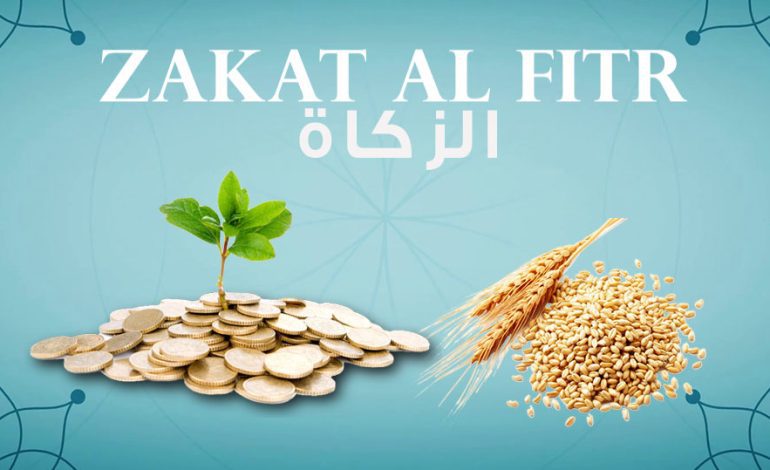20 Rulings Every Muslim Should Know About Zakat Al-Fitr


Zakat Al-Fitr, an essential pillar of Islam, holds significant importance in the lives of Muslims worldwide. As the holy month of Ramadan draws to a close, Muslims prepare to observe Eid ul-Fitr, marking the culmination of fasting and spiritual reflection. Amidst the festivities, the obligation of Zakat Al-Fitr stands as a crucial aspect of Islamic practice, embodying principles of charity, compassion, and social justice.
Understanding the rulings and guidelines governing Zakat Al-Fitr is paramount for every Muslim, as it ensures the fulfillment of this fundamental obligation in accordance with Islamic teachings.
In this guide, we will explore 20 essential rulings every Muslim should know about Zakat Al-Fitr, drawing upon the teachings of Islamic scholars and jurists. By delving into these rulings, we aim to provide clarity and guidance to Muslims seeking to fulfill their obligation of Zakat Al-Fitr by the teachings of Islam.
1. Obligatory Nature: Zakat al-Fitr is obligatory upon every Muslim who possesses the required amount of wealth beyond his or her basic needs.
2. Timing: It is obligatory to pay Zakat al-Fitr before the Eid prayer of Eid ul-Fitr.
3. Quantification: The amount of Zakat al-Fitr is equivalent to a specific measure of staple food items, such as wheat, barley, dates, or raisins. (Reference: Sheikh Yusuf Qordiwi)
4. Measurements: The quantity of Zakat al-Fitr should be given in accordance with local standards and prevailing market prices.
5. Eligibility: Zakat al-Fitr is mandatory for every Muslim, including children and the elderly, provided they possess the necessary wealth.
6. Distribution: Zakat al-Fitr should be distributed to the needy and deserving individuals within the community before the Eid prayer.
7. Intention: Like other acts of worship, the intention to fulfill Zakat al-Fitr should be made sincerely for the sake of Allah.
8. Local Distribution: It is recommended to distribute Zakat al-Fitr locally, ensuring that it reaches those in need within one’s community.
9. Cash Equivalent: In certain circumstances, it is permissible to pay the cash equivalent of Zakat al-Fitr, provided it is distributed to eligible recipients.
10. Recipients: Zakat al-Fitr can be given to a wide range of recipients, including the poor, needy, debtors, and travelers in need.
11. Exclusions: Zakat al-Fitr cannot be given to one’s dependents, such as immediate family members who are financially supported by the payer.
12. Food Items: It is preferable to give Zakat al-Fitr in the form of staple food items, as this fulfills the Sunnah and ensures the provision of necessities.
13. Amount per Person: The amount of Zakat al-Fitr due per person is equivalent to one Sa’ (approximately 3 kilograms) of the specified food items.
14. Administering: It is recommended to appoint trustworthy individuals or organizations to administer the collection and distribution of Zakat al-Fitr.
15. Early Payment: It is permissible to pay Zakat al-Fitr in advance of the Eid prayer, provided it is done within the prescribed time frame.
16. Multiple Recipients: One person can pay Zakat al-Fitr on behalf of themselves and their dependents, but each individual should fulfill their obligation separately.
17. Variation in Food Items: If the specified food items are not available or are excessively expensive, alternatives may be used, provided they are staple foods consumed locally.
18. Consistency: Zakat al-Fitr should be paid annually, ensuring continuity in the fulfillment of this important obligation.
19. Local Custom: In matters of Zakat al-Fitr, local customs and practices should be considered, ensuring the effective distribution of charity within the community.
20. Spiritual Reward: Fulfilling the obligation of Zakat al-Fitr not only provides material assistance to the needy but also brings immense spiritual reward and purification to the giver.
Reference: Sheikh Yusuf Qordowi in his book titled “Fiqh Al-Mu’amalat” (Jurisprudence of Transactions). This book covers various aspects of Islamic jurisprudence related to financial transactions, including Zakat Al-Fitr.


Sodiq Lawal is a passionate and dedicated journalist with a knack for uncovering captivating stories in the bustling metropolis of Osun State and Nigeria at large. He has a versatile reporting style, covering a wide range of topics, from politics , campus, and social issues to arts and culture, seeking impact in all facets of the society.










